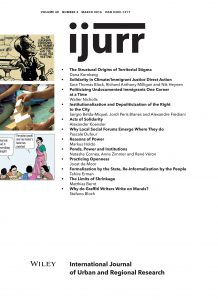American authenticity in "Jon and Kate plus 8"
 In the last two months, many if not most of the major American media outlets have seemingly become obsessed with the family behind the reality television series “Jon and Kate Plus 8.” What began innocently enough as a simple reality television show documenting the lives of a family struggling to provide for eight children suddenly became one of the most talked about shows on American television, with reportedly almost ten million viewers tuning into the season premiere on Memorial Day (see NY Times article). Interestingly, the media whirlwind that has gathered around the show has focused less on the show’s original premise and more on the family’s off-air antics. Both the show itself and the media spotlight encompassing it seem to provide particularly strong sites for a sociological investigation from a number of perspectives.
In the last two months, many if not most of the major American media outlets have seemingly become obsessed with the family behind the reality television series “Jon and Kate Plus 8.” What began innocently enough as a simple reality television show documenting the lives of a family struggling to provide for eight children suddenly became one of the most talked about shows on American television, with reportedly almost ten million viewers tuning into the season premiere on Memorial Day (see NY Times article). Interestingly, the media whirlwind that has gathered around the show has focused less on the show’s original premise and more on the family’s off-air antics. Both the show itself and the media spotlight encompassing it seem to provide particularly strong sites for a sociological investigation from a number of perspectives.
Recently, the concept of “authenticity” has become increasingly important to a growing number of cultural sociologists, particularly for those working out of the social performance literature. According to such scholars as Jeffrey Alexander and Jason Mast, the process of identifying social objects and events as either “authentic” or “fake” not only works to make use of particular cultural structures but also affirms them. The original media response to the television show “Jon and Kate Plus 8” illustrates this notion of authenticity quite well. The show was initially conceived as providing an intimate look into the lives of an “ordinary American family.” Rather than the glamorous lives portrayed on fictional shows and other reality programs, “Jon and Kate Plus 8” tapped into what many Americans consider to be the “authentic” American family experience – the suburban, middle class family with two parents working together to make ends meet and provide the best for their family.
If this was indeed the show’s original intentions (as the NY Times article alleges it was), then the show’s symbolic performance was relatively successful, garnering high ratings for a cable reality television show and spawning a variety of family-themed merchandise. Of course, even symbolic performances initially considered to be “authentic” can at a later date be labeled “inauthentic” in lieu of new conditions. Almost ironically, such a fate may befall “Jon and Kate” as the show’s popularity has made it increasingly harder for the family to successfully perform as an ordinary American family. On the one hand, the show’s success has provided the family with a relatively large source of income, with the NY Times reporting that the family makes between $25,000 and $50,000 per episode. Later episodes of the show have provided some insight into the show’s financial success, filming the family moving into a much larger and more luxurious home.
However, perhaps the media’s fascination with the family has most challenged the show’s performance as an “authentic” American family. For over two months now, tabloid reporters and magazines have been covering the allegedly scandalous behavior of both parents, reporting that the couple has been separated for months and only pretend to be together on the show for the money. Besides the rumors, the media’s attention alone makes the performance difficult, as most American families certainly don’t have to deal with such relentless media coverage.
Yet, while the family may be currently enduring a media frenzy that calls into question their “authenticity” as an ordinary American family, the show’s ratings has as of yet not suffered. However, it may be possible that viewers are now tuning into the show for a different type of authenticity – that of a couple dealing with the media spotlight they themselves helped spawn. The first episode of the latest season provides a good indication of the producers’ awareness of the show’s possible new performance, focusing more on Jon and Kate’s issues with the media while family affairs largely take a backseat.
![]()
![]() Phillip Vannini and Alexis Franzese “The Authenticity of Self”
Phillip Vannini and Alexis Franzese “The Authenticity of Self”
















1099-0860/asset/NCB_logo.gif?v=1&s=40edfd0d901b2daf894ae7a3b2371eabd628edef)
Great sociological consideration of Jon and Kate. I have never watched this show (and ditched cable this winter). But reality television has a special place in my sociological heart.
Keri